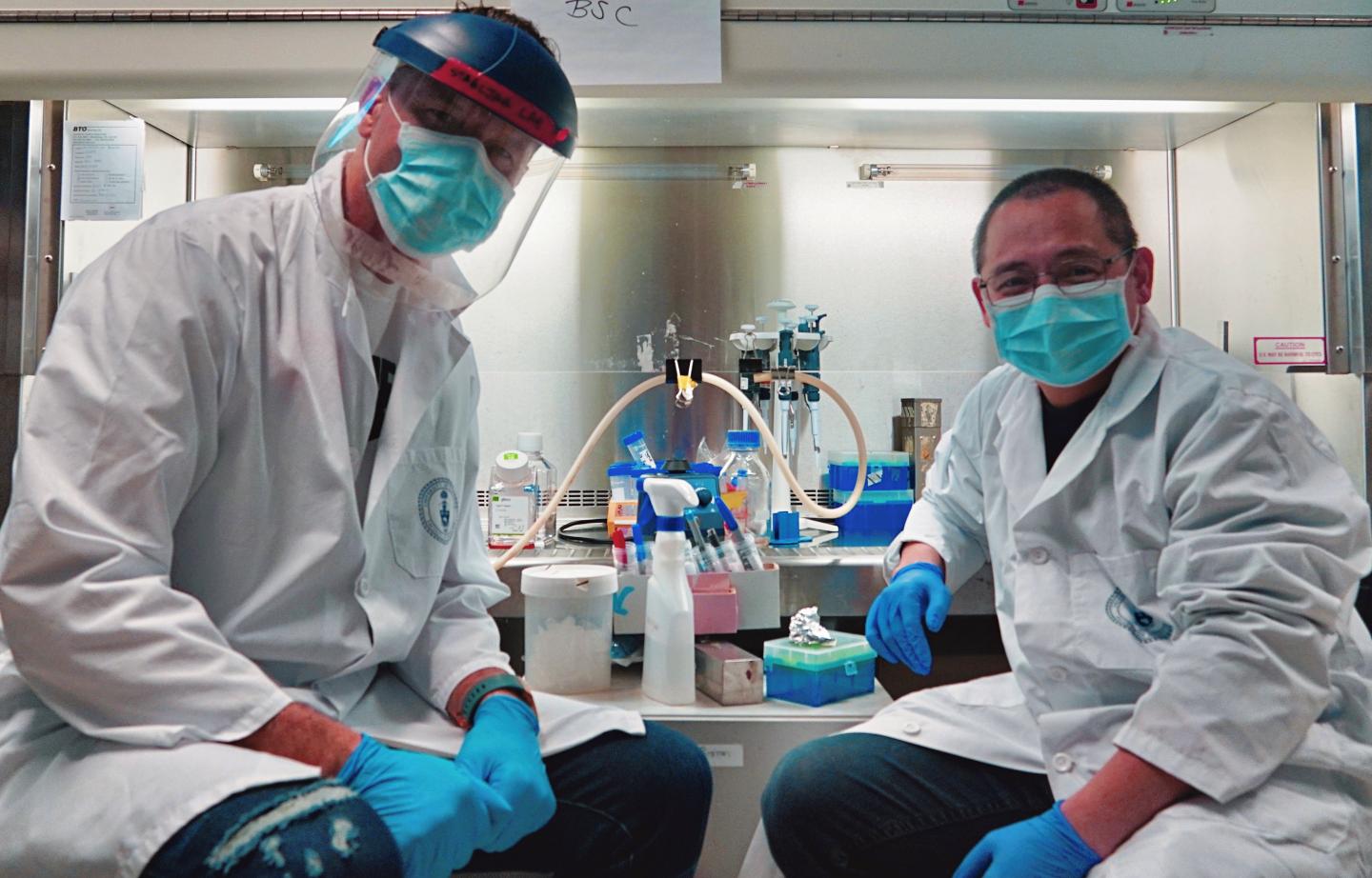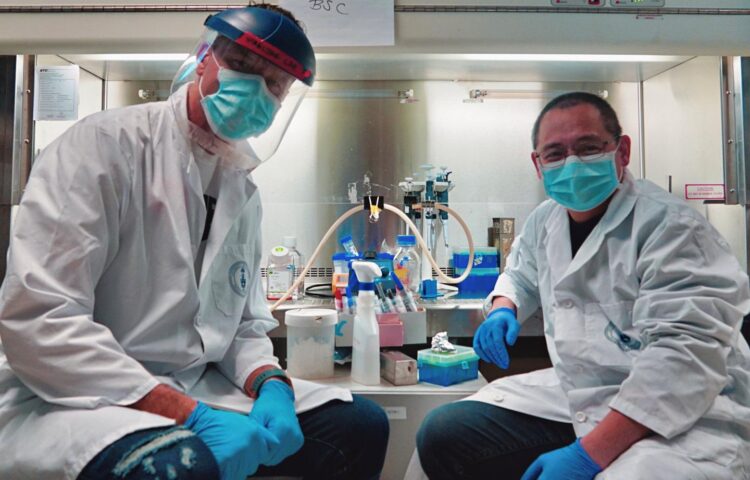New test can accurately detect coronavirus antibodies in a drop of blood in less than an hour

Credit: Farzaneh Aboualizadeh
Igor Stagljar made his career building molecular tools to combat cancer. But when the pandemic hit last March, he aimed his expertise at a new adversary, SARS-CoV-2.
Stagljar is a professor of biochemistry and molecular genetics in the Donnelly Centre for Cellular and Biomolecular Research at U of T’s Temerty Faculty of Medicine. Last spring, with support from U of T’s Toronto COVID-19 Action Fund, his team began developing a new method for measuring immunity to coronavirus in those who recovered from COVID-19.
They are now ready to reveal their creation — a pinprick test that accurately measures in under one hour concentration of coronavirus antibodies in blood. And it’s cheap, costing a toonie or about tenth of the cost of the market gold standard.
Their method has been published in a study out today in the journal Nature Communications.
“Our assay is as sensitive, if not better than any other currently available assay in detecting low levels of IgG antibodies, and its specificity, also known as false-positive rate, is as good as the best antibody test on the market,” said Stagljar who collaborated with public health agencies and blood banks from across Canada to have the test validated on blood samples taken from former COVID-19 patients.
Serological tests detect antibodies, protein molecules in blood that recognize and neutralize Sars-CoV-2 to prevent infection. Such tests are seen as a key tool for public health experts wanting to measure population immunity to be better able to manage the ongoing pandemic.
According to a January report by the national COVID Immunity Task Force, the majority of Canadians remain vulnerable to coronavirus infection with less than two percent testing positive for antibodies.
Population level studies can also help reveal duration of coronavirus immunity across patients who had different experiences of disease, from asymptomatic to severe. They also have the potential to reveal threshold antibody level required for protection after natural infection and vaccination.
“That level is still to be determined, but we do know that people who have been infected with SARS-CoV-2 have very diverse levels of antibodies, and it would not be surprising to find that below some baseline level they might not be protective,” said Zhong Yao, senior research associate in Stagljar’s lab and coinventor of the testing method.
Several serological tests have received regulatory approval with ELISA-based methods as the gold standard when it comes to measuring antibody concentration as a strength of individual immune response. But it comprises several laboratory steps that take six hours to complete, making it unsuitable for rapid diagnostics. Simpler methods using test strips, similar to pregnancy tests, provide fast results but are not quantitative and are less reliable.
The new method is called SATiN, for Serological Assay based on split Tripart Nanoluciferase. It is the first COVID-19 serology test that uses highly sensitive protein complementation chemistry in which a light-emitting luciferase protein is reconstituted from separate fragments as test readout.
Luciferase is initially supplied in fragments that cannot not glow on their own. One piece is attached on the viral spike protein, which antibodies bind to neutralise the virus, while another is hooked to a bacterial protein that antibodies also interact with. By binding simultaneously to the coronavirus spike protein and the bacterial protein, the antibody helps lock luciferase pieces together into a whole molecule. A flash of light ensues whose intensity is detected and converted into antibody concentration by a plate reader instrument. All reagents can be prepared from scratch and in bulk and this keeps the cost down.
Stagljar is now working with U of T’s intellectual property office and Toronto Innovation Acceleration Partners to find industry partners that would help make the method widely available. He is also collaborating with Dr. Prabhat Jha, Director of the Centre for Global Health Research at St. Michael’s Hospital and a professor at U of T’s Dalla Lana School of public Health, who is leading a long-term study to establish duration of immunity across 10,000 Canadians. In another project, Stagljar is working with Dr. Allison McGeer, Senior Clinician Scientist at Sinai Health System and also a professor at Dalla Lana, to assess antibody levels in people after vaccination.
“It’s really useful to have that quantitative ability to know what someone’s antibody status is, whether it’s from a past infection or a vaccination. This will be of crucial importance for the next stage of the pandemic, especially now when governments of all countries started with mass vaccinations with recently approved anti-COVID-19 vaccines”, Stagljar said.
###
Media Contact
Jovana Drinjakovic
[email protected]
Related Journal Article
http://dx.





